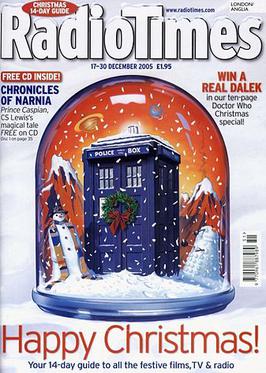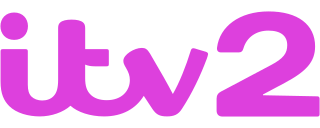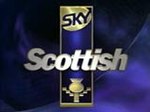
ITV Digital was a British digital terrestrial television broadcaster which launched a pay-TV service on the world's first digital terrestrial television network. Its main shareholders were Carlton Communications plc and Granada plc, owners of multiple licences of the ITV network. Starting as ONdigital in 1998, the service was rebranded as ITV Digital in July 2001.
Regular television broadcasts in the United Kingdom started in 1936 as a public service which was free of advertising, which followed the first demonstration of a transmitted moving image in 1926. Currently, the United Kingdom has a collection of free-to-air, free-to-view and subscription services over a variety of distribution media, through which there are over 480 channels for consumers as well as on-demand content. There are six main channel owners who are responsible for most material viewed.
Sky Cinema is a British subscription film service owned by Sky Group. In the United Kingdom, Sky Cinema channels currently broadcast on the Sky satellite and Virgin Media cable platforms, and in addition Sky Cinema on demand content are available through these as well as via NOW, EE TV and TalkTalk TV.

The British Forces Broadcasting Service (BFBS) provides radio and television programmes for His Majesty's Armed Forces, and their dependents worldwide. Editorial control is independent of the Ministry of Defence and the armed forces themselves. It was established by the British War Office in 1943. In 1944, it was managed by Gale Pedrick.

Radio Times is a British weekly listings magazine devoted to television and radio programme schedules, with other features such as interviews, film reviews and lifestyle items. Founded in May 1923 by John Reith, then general manager of the British Broadcasting Company, it was the world's first broadcast listings magazine.

ITV2 is a British free-to-air television channel owned by ITV Digital Channels, a division of ITV plc. It was launched on 7 December 1998. For a number of years, it had the largest audience share after the five analogue terrestrial stations, a claim now held by its sister service ITV3 both of which are freely available to a majority of households.

Dave is a British free-to-air television channel owned by UKTV, a subsidiary of BBC Studios. It broadcasts mainly comedy, with some factual programming. The channel took the name Dave on 15 October 2007, but it had been on air under various identities and formats since October 1998.

The Power Station was a British television channel that was operated by British Satellite Broadcasting. It was a dedicated music channel.
Television in Scotland mostly consists of UK-wide broadcasts, with regional variations at different times which are specific to Scotland. The BBC and ITV networks both began broadcasting in the country during the 1950s. There were further expansions in the early 1960s with the arrival of Grampian, Border and BBC2 television.
The history of ITV, the United Kingdom and Crown Dependencies "Independent Television" commercial network, goes back to 1955.

North Tonight was a Scottish nightly regional news programme covering the North of Scotland, produced by STV North.

Scotland Today was a Scottish regional news programme covering Central Scotland, produced by STV Central. Despite its name suggesting a national remit, the programme was actually limited to stories around STV's Central Belt franchise. North Tonight covered STV's North Scotland region, until both programmes were renamed STV News at Six in March 2009.
TCM Movies was a British pay television channel, focussing mostly on classic movies, mostly from the Turner Entertainment and Warner Bros. film libraries, which included many MGM titles, along with movie-related profiles and some classic American television series.

STV is a free-to-air public broadcast television channel owned and operated by the STV Group. It is made up of the Central Scotland and Northern Scotland ITV public broadcaster licences, formerly known as Scottish Television and Grampian Television respectively.

BBC Alba is a Scottish Gaelic-language free-to-air public broadcast television channel jointly owned by the BBC and MG Alba. The channel was launched on 19 September 2008 and is on-air for up to seven hours a day. The name Alba is the Scottish Gaelic name for Scotland. The station is unique in that it is the first channel to be delivered under a BBC licence by a partnership and was also the first multi-genre channel to come entirely from Scotland with almost all of its programmes made in Scotland.

STV Group plc is a media company based in Glasgow, Scotland. Beginning as a television broadcaster in 1957, the company expanded into newspapers, advertising and radio; after completing a restructuring in 2010, STV Group is active in broadcast television, video-on-demand and television production. The company is a constituent of the FTSE SmallCap Index.
This is a timeline of the history of Sky Television.
This is a timeline of the history of the British broadcaster Scottish Television. It provides the ITV network service for Central Scotland.
This is a timeline of television in Scotland.











